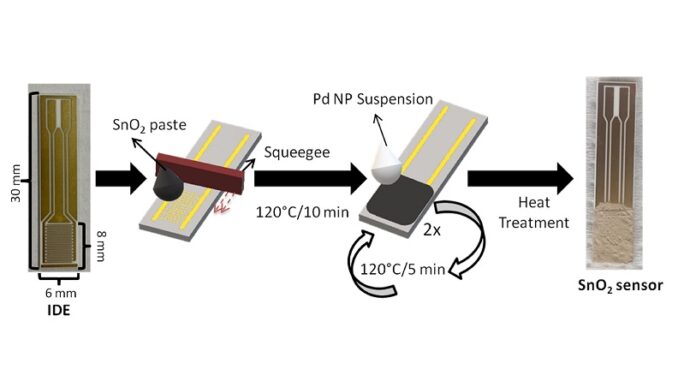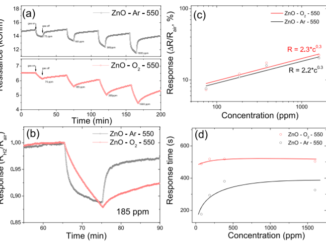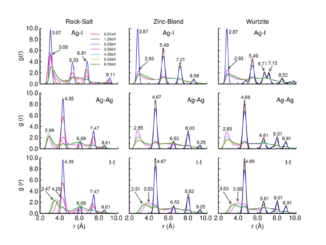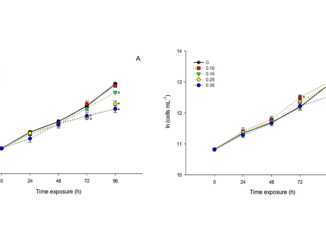
Room-temperature SnO2-based sensor with Pd-nanoparticles for real-time detection of CO dissolved gas in transformer oil
Abstract: SnO2 and Pd nanoparticles (NPs) were synthesized by hydrothermal method and sol-gel, respectively. A paste formed by tin dioxide NP and PVDF was deposited as thick film on alumina substrates through screen printing method and decorated with Pd on surface. The morphology and structure of the samples were investigated by Scanning Electronic Microscopy (SEM), X-Ray Diffraction (XRD) and Raman Spectroscopy. The SEM images show SnO2 nanoparticles with rod shapes and 10–15 nm of diameter size and Pd spherical nanograins with 15–35 nm of diameter. XRD analysis identifies rutile structure for SnO2 powder and cubic structure for Pd NP. To investigate the gas sensing property of the SnO2:Pd nanostructured composite, the electrodes were immersed in an insulating mineral oil, in a closed system where different gas concentration of monoxide carbon (CO) were injected into the headspace and then dissolved into oil, according to Ostwald coefficient. All measurements were carried out at room temperature using a concentration range from 50 to 500 ppm (in headspace). The electric characterization showed that our SnO2-based sensor had change its resistance in a lower concentration of dissolved gas, ∼13.3 ppm of CO, into the mineral oil, indicating its potential use for real time monitoring of transformers.
Author(s): Agnes Nascimento Simões, Glauco Meireles Mascarenhas Morandi Lustosa, Eugênio de Souza Morita, André Nunes de Souza, Floriano Torres, Waldir Antonio Bizzo, Talita Mazon
Materials Chemistry and Physics
Published: 1 January 2024, Volume 311, 128576
DOI: https://doi.org/10.1016/j.matchemphys.2023.128576
CDMF
The CDMF, hosted at the Federal University of São Carlos (UFSCar), is one of the Research, Innovation and Dissemination Centers (RIDC) supported by the São Paulo State Research Support Foundation (Fapesp), and also receives investment from the National Council Scientific and Technological Development (CNPq), from the National Institute of Science and Technology of Materials in Nanotechnology (INCTMN).




